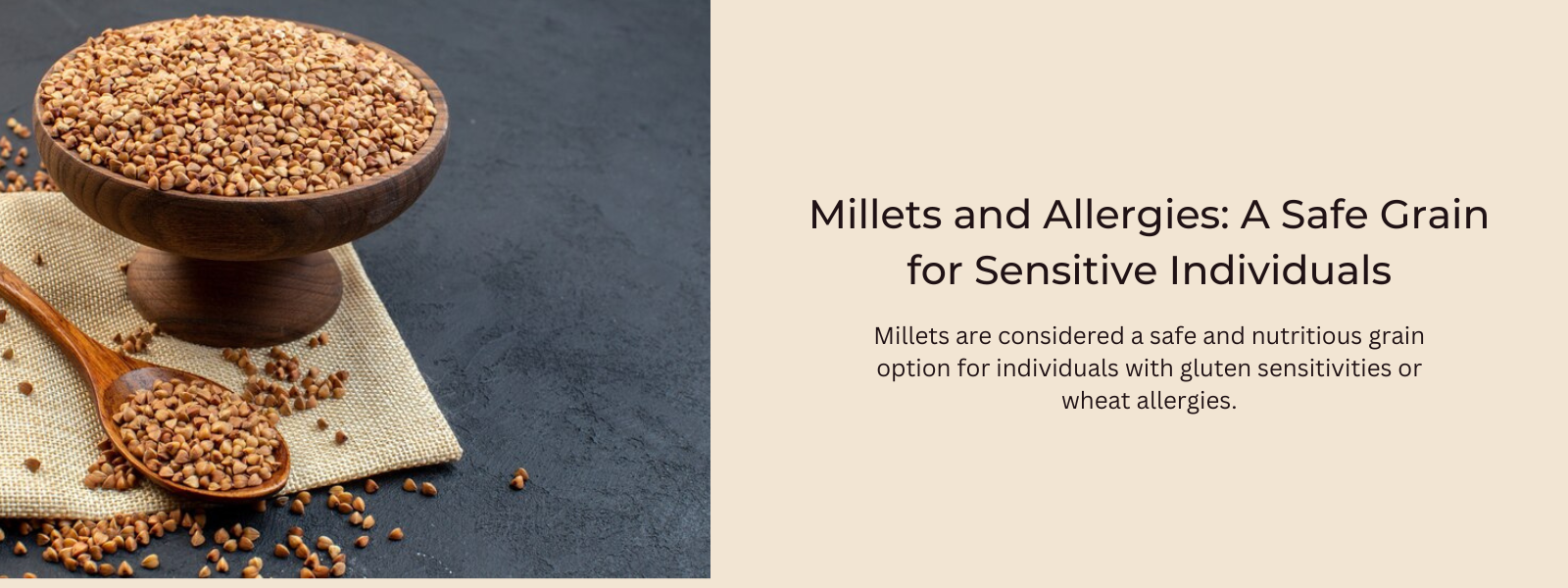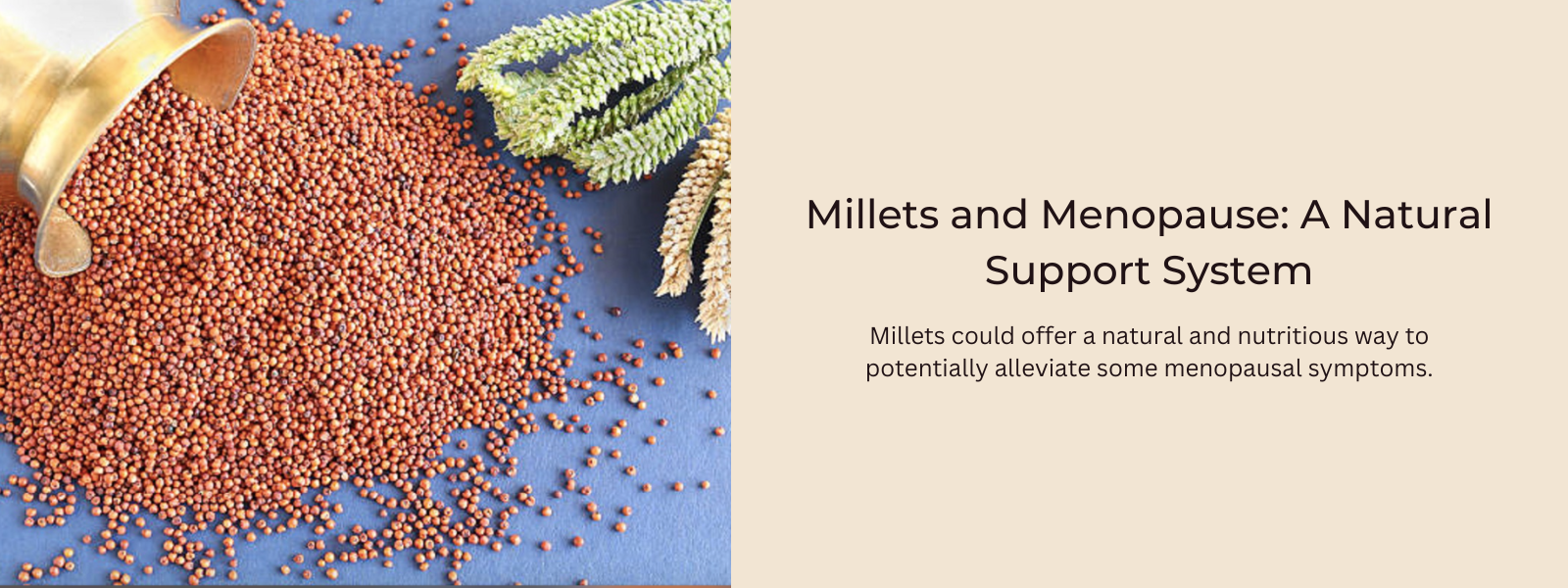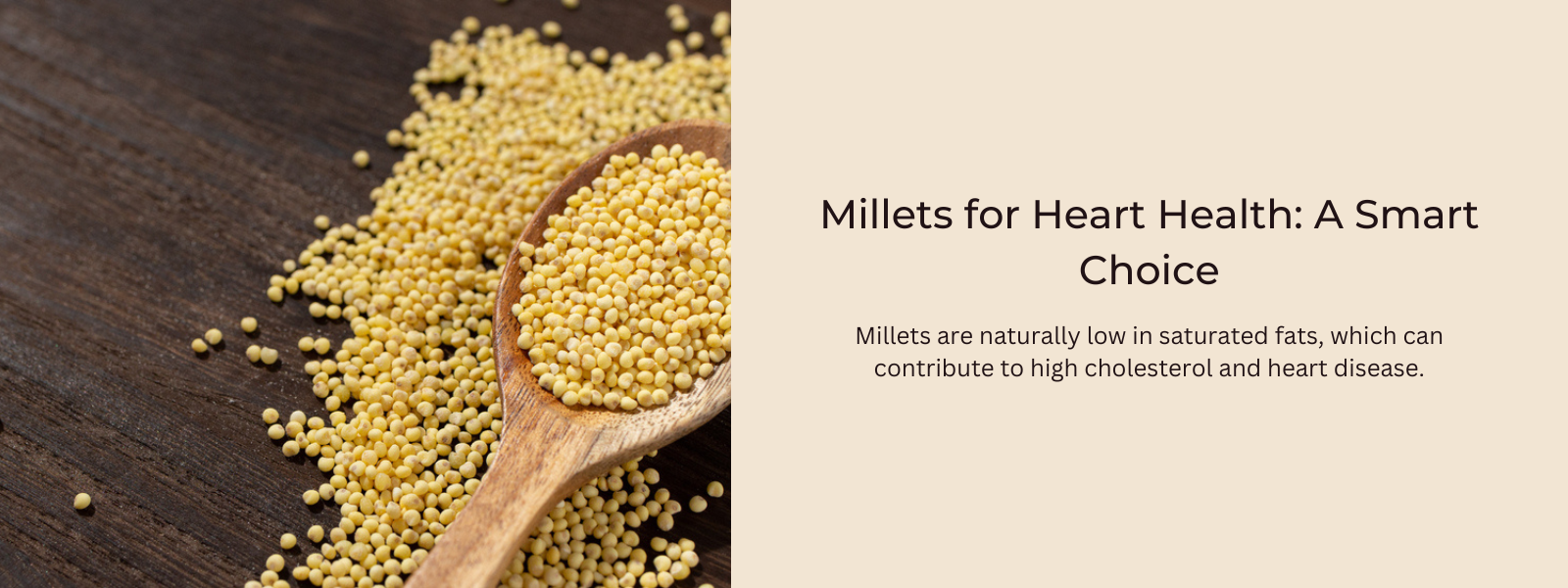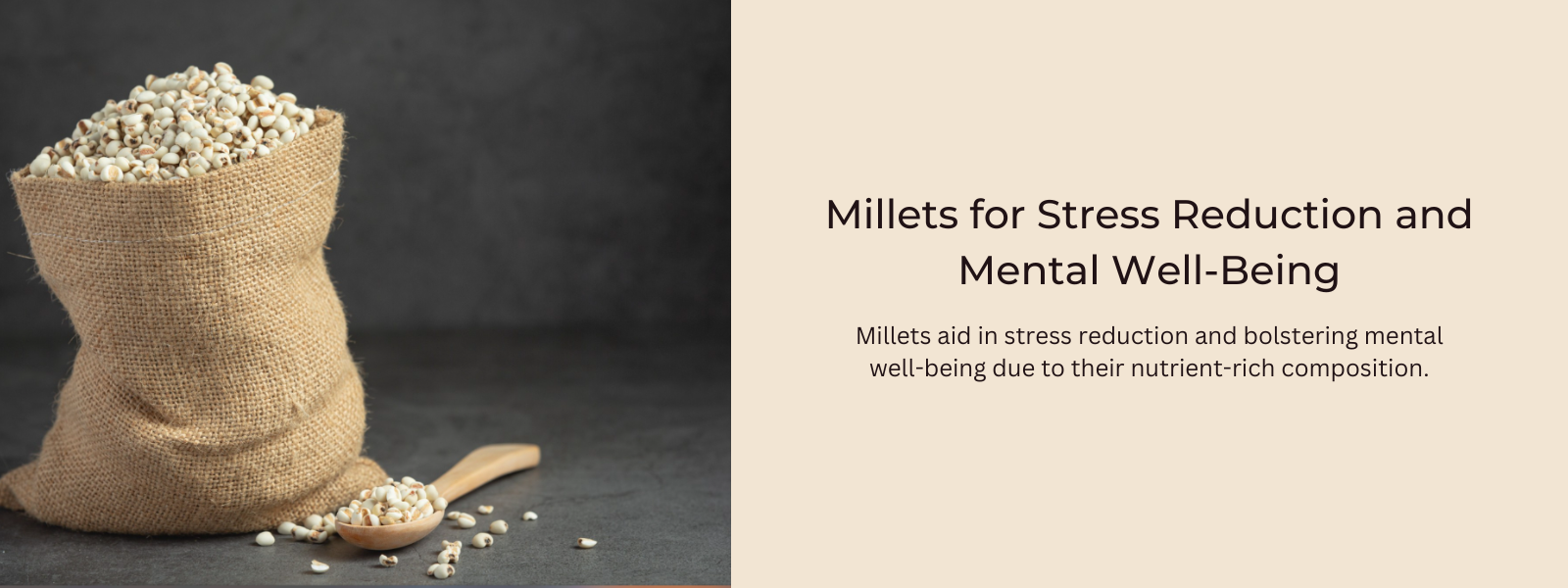Millets, encompassing diverse grains like sorghum, finger millet (ragi), pearl millet (bajra), and others, offer a promising contribution to an anti-inflammatory diet due to their nutritional richness. These grains contain an array of nutrients, including vitamins, minerals (such as magnesium and zinc), antioxidants like polyphenols, and dietary fiber. These components collectively exhibit anti-inflammatory properties that may aid in mitigating inflammation within the body. Antioxidants found in millets combat oxidative stress by neutralizing free radicals, potentially reducing inflammation levels. Moreover, the fiber content supports gut health, influencing the balance of gut bacteria and potentially impacting overall inflammation. Certain millets have a lower glycemic index than refined grains, facilitating steadier blood sugar levels and potentially diminishing inflammatory responses associated with rapid glucose spikes. Being gluten-free, millets also offer a favorable option for individuals sensitive to gluten, avoiding potential inflammation triggers found in gluten-containing grains.
Table of Contents
What Is An Anti-Inflammatory Diet?
An anti-inflammatory diet is a dietary approach focused on consuming foods that have the potential to reduce inflammation in the body. It emphasizes whole, minimally processed foods abundant in nutrients and antioxidants, such as fruits, vegetables, whole grains (like millets), nuts, seeds, fatty fish rich in omega-3 fatty acids, healthy fats (like olive oil and avocados), and spices like turmeric and ginger known for their anti-inflammatory properties. This diet minimizes or avoids processed foods, refined sugars, unhealthy fats, and excessive intake of red meats and processed meats, as these may contribute to inflammation. The goal of an anti-inflammatory diet is to lower levels of chronic inflammation, which, if left unchecked, can contribute to various chronic conditions and diseases.
Importance Of Anti-Inflammatory Diet:
An anti-inflammatory diet is essential for various reasons related to overall health and well-being:
- Reduction of Chronic Inflammation: Chronic inflammation has been linked to several health issues, including cardiovascular diseases, diabetes, arthritis, and certain cancers. An anti-inflammatory diet can help reduce inflammation, potentially lowering the risk of developing these chronic conditions.
- Supports Heart Health: Inflammation is associated with an increased risk of heart disease. Adopting an anti-inflammatory diet rich in fruits, vegetables, whole grains, healthy fats, and lean proteins can positively impact heart health by lowering inflammation and reducing risk factors like high cholesterol and high blood pressure.
- Balanced Immune Function: Chronic inflammation can compromise the immune system. A diet focused on anti-inflammatory foods supports a balanced immune response, helping the body fight infections and diseases effectively.
- Weight Management: Inflammation can affect hormones involved in metabolism, potentially contributing to weight gain and obesity. An anti-inflammatory diet, coupled with regular exercise, can aid in weight management by reducing inflammation and promoting a healthier metabolism.
- Supports Gut Health: The gut plays a significant role in inflammation regulation. An anti-inflammatory diet that includes fiber-rich foods, probiotics, and prebiotics supports a healthy gut microbiome, reducing gut inflammation and promoting digestive health.
- Enhanced Overall Well-being: Adopting an anti-inflammatory diet can lead to increased energy levels, improved mood, better sleep quality, and overall improved quality of life.
Is Millet Naturally Anti-Inflammatory?
Millets possess attributes that contribute to an anti-inflammatory diet, although describing them as inherently "naturally anti-inflammatory" might oversimplify their role. Millets, including varieties like sorghum, finger millet (ragi), pearl millet (bajra), and others, offer a rich array of nutrients, such as vitamins, minerals (like magnesium and zinc), antioxidants (including polyphenols), and dietary fiber. These components collectively display properties that can aid in reducing inflammation within the body. Antioxidants found in millets combat oxidative stress, potentially lowering inflammation levels, while the fiber content supports gut health, impacting the balance of gut bacteria and influencing overall inflammation. Additionally, certain millets having a lower glycemic index could contribute to more stable blood sugar levels, potentially reducing inflammation linked to blood sugar spikes.
How Does Millet Combat Inflammation?
Millets, owing to their nutritional composition, can contribute to an anti-inflammatory diet, potentially aiding in managing inflammation-related conditions. Here's how millets may play a role in combating inflammation:
- Rich in Nutrients: Millets, comprising various types such as sorghum, pearl millet, finger millet, etc., offer a diverse range of nutrients like vitamins, minerals (such as magnesium and zinc), antioxidants (like polyphenols), and dietary fiber. These nutrients collectively possess anti-inflammatory properties that can help reduce inflammation in the body.
- Antioxidant Content: Antioxidants found in millets counteract oxidative stress and reduce the production of free radicals that contribute to inflammation. Polyphenols and other antioxidants present in millets help neutralize these harmful molecules, potentially lowering inflammation levels.
- Fiber and Gut Health: Millets are a good source of dietary fiber, promoting gut health and potentially reducing inflammation by supporting a healthy balance of gut microbiota. A healthy gut microbiome contributes to overall well-being and can impact inflammation throughout the body.
- Low Glycemic Index (GI): Some millets have a lower glycemic index compared to refined grains. Foods with a lower GI release glucose more slowly into the bloodstream, potentially reducing inflammatory responses triggered by sudden spikes in blood sugar levels.
- Gluten-Free Nature: For individuals sensitive to gluten, millets serve as an excellent gluten-free alternative. Avoiding gluten-containing grains like wheat, which may trigger inflammation in some people with gluten sensitivities, can contribute to an anti-inflammatory dietary pattern.










Leave a comment